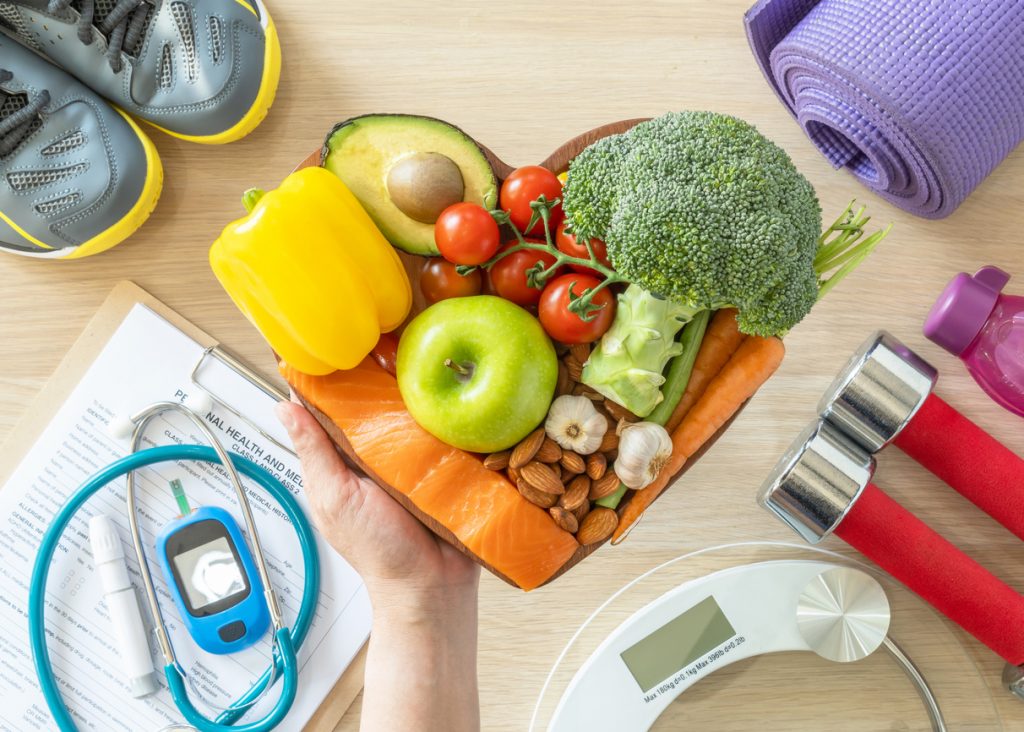The best and worst foods for good heart health
The heart is one of the vital organs in our body beating up to 100,000 times a day. It is responsible for pumping blood through our bodies, supplying it with oxygen and removing toxins and waste.
It is one hard-working muscle and something we all need to take care of. So, what can we do to maintain good heart health?

What is good heart health?
To maintain good heart health there are a number of things we need to do. From making healthy choices to understanding the risks certain aspects of our lifestyle can have on reducing our chance of getting heart disease.
Exercise, drinking alcohol in moderation, quitting smoking, trying to manage our stress levels, controlling cholesterol and blood pressure all contribute to keeping a healthy heart.
The food we eat also has a massive effect on heart health. While ‘everything in moderation’ is a good rule of thumb, let’s take a look at some of the foods that are great for heart health and foods that aren’t.
Best foods for a healthy heart
Eating a variety of the following foods is a great way to help to maintain good heart health.
Fresh foods should make up the majority of our diet, with a mix of healthy protein sources including fish, lean meat, poultry, legumes, nuts and seeds.
The foods listed below are what we should load our plate up with.
- Leafy green vegetables like spinach and kale
- Whole grains options that have more nutrients like dietary fibre, Vitamins E and A
- Fatty fish like salmon and fish oil
- Avocados
- Nuts and seeds (walnuts in particular)
- Legumes
- Dark chocolate
- Oats, quinoa, and barley
- Low-fat diary.

Foods that aren’t good for heart health
While most things in moderation are ok, the following won’t help your heart or your waistline if they make up a large part of your diet.
Eating too much saturated and trans-fat can also increase blood cholesterol levels putting a strain on the heart.
- White rice, bread, and pasta
- Processed meats
- Full fat milk and other dairy products
- Organ meats, such as liver
- Fatty and marbled meats
- Sugar
- Salt
- Saturated fat
- Cakes, biscuits, and pies
- Fried food
- Avoid ‘reduced-fat’ or ‘no-fat’ labelled food
- Diet soft drinks.
When to see a doctor about your heart
Chest pain, pressure, an irregular heartbeat, shortness of breath, palpitations, dizziness, discomfort, are all serious symptoms and shouldn’t go unchecked by a doctor.
If any of these symptoms occur, or you have a family history of heart disease, high blood pressure or a history of smoking, it is best to err on the side of caution and seek help.
When it comes to heart health it’s important to mention your symptoms to your GP immediately, as it’s better for it to be a false alarm than go unchecked and lead to something serious.
If you are experiencing symptoms, you should speak to a doctor to find out the right treatment for you. You can request a telehealth consultation with one of our Australian-registered doctors from anywhere in Australia, seven days a week.
To speak with an InstantScripts Doctor:
Request a ConsultationIf you have run out of your script:
Request a ScriptThis article is written by Cathrine Mahoney, a Sydney-based writer with a particular interest in women’s health, mental health and living well. Cathrine holds a Bachelor of Media Studies, is a columnist with Body+Soul, an author and podcast host.
Latest articles
© InstantScripts
Level 19, 644 Chapel Street,
South Yarra VIC 3141

